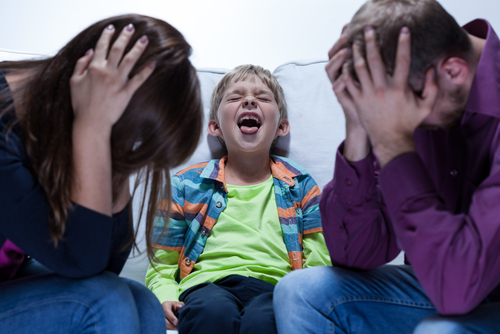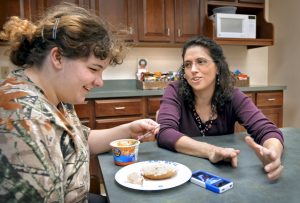
Mindfulness Improves Physical and Mental Well-Being
By John M. de Castro, Ph.D.
“scientists have found that practicing mindfulness is associated with changes in the structure and function of the brain as well as changes in our body’s response to stress, suggesting that this practice has important impacts on our physical and emotional health.” – University of Minnesota
Over the last several decades, research and anecdotal experiences have accumulated an impressive evidential case that the development of mindfulness has positive benefits for the individual’s mental, physical, and spiritual life. Mindfulness appears to be beneficial both for healthy people and for people suffering from a myriad of mental and physical illnesses. It appears to be beneficial across ages, from children, to adolescents, to the elderly. And it appears to be beneficial across genders, personalities, race, and ethnicity. The breadth and depth of benefits is unprecedented. There is no other treatment or practice that has been shown to come anyway near the range of mindfulness’ positive benefits.
Research on mindfulness effects on mental and physical health has exploded over the last few decades. So, it makes sense to pause and examine what has been learned. In today’s Research News article “Mindfulness-based interventions: an overall review” (See summary below or view the full text of the study at: https://www.ncbi.nlm.nih.gov/pmc/articles/PMC8083197/ ) Zhang and colleagues reviewed and summarized the randomized controlled trials and meta-analyses of the effects of mindfulness-based practices on mental and physical health.
They report that the published research studies and meta-analyses found that mindfulness-based practices produced significant improvements in mental health including anxiety, depression, anger, prosocial behavior, loneliness, physiological and psychological indicators of stress, insomnia, eating disorders, addictions, psychoses, Post-Traumatic Stress Disorder (PTSD), attention-deficit hyperactivity disorder (ADHD), and autism. They also report that mindfulness-based practices produced significant improvements in physical health including pain, hypertension, cardiovascular disease, obesity, diabetes, cancer, asthma, chronic obstructive pulmonary disease (COPD), aggression, and violence.
In addition, mindfulness-based practices produced safe, cost-effective improvements in professional and healthcare settings, in schools, and in the workplace. Further they report that mindfulness-based practices produced significant changes in the structure and activity of the nervous system, improvements in immune functioning and physiological markers of stress.
The review of the published research has provided a compelling case for the utilization of mindfulness-based practices for a myriad of psychological and physical problems in humans of all ages with and without disease. The range and depth of effects are unprecedented making a strong case for the routine training in mindfulness for the improvement of their well-being.
So, mindfulness improves physical and mental well-being.
“engaging in mindfulness meditation cultivates our ability to both focus and broaden our attention, which is a practical way to elicit psychological well-being.” – Jennifer Wolkin
CMCS – Center for Mindfulness and Contemplative Studies
This and other Contemplative Studies posts are also available on Google+ https://plus.google.com/106784388191201299496/posts and on Twitter @MindfulResearch
Study Summary
Zhang, D., Lee, E., Mak, E., Ho, C. Y., & Wong, S. (2021). Mindfulness-based interventions: an overall review. British medical bulletin, ldab005. Advance online publication. https://doi.org/10.1093/bmb/ldab005
Abstract
Introduction
This is an overall review on mindfulness-based interventions (MBIs).
Sources of data
We identified studies in PubMed, EMBASE, CINAHL, PsycINFO, AMED, Web of Science and Google Scholar using keywords including ‘mindfulness’, ‘meditation’, and ‘review’, ‘meta-analysis’ or their variations.
Areas of agreement
MBIs are effective for improving many biopsychosocial conditions, including depression, anxiety, stress, insomnia, addiction, psychosis, pain, hypertension, weight control, cancer-related symptoms and prosocial behaviours. It is found to be beneficial in the healthcare settings, in schools and workplace but further research is warranted to look into its efficacy on different problems. MBIs are relatively safe, but ethical aspects should be considered. Mechanisms are suggested in both empirical and neurophysiological findings. Cost-effectiveness is found in treating some health conditions.
Areas of controversy
Inconclusive or only preliminary evidence on the effects of MBIs on PTSD, ADHD, ASD, eating disorders, loneliness and physical symptoms of cardiovascular diseases, diabetes, and respiratory conditions. Furthermore, some beneficial effects are not confirmed in subgroup populations. Cost-effectiveness is yet to confirm for many health conditions and populations.
Growing points
Many mindfulness systematic reviews and meta-analyses indicate low quality of included studies, hence high-quality studies with adequate sample size and longer follow-up period are needed.
Areas timely for developing research
More research is needed on online mindfulness trainings and interventions to improve biopsychosocial health during the COVID-19 pandemic; Deeper understanding of the mechanisms of MBIs integrating both empirical and neurophysiological findings; Long-term compliance and effects of MBIs; and development of mindfulness plus (mindfulness+) or personalized mindfulness programs to elevate the effectiveness for different purposes.
https://www.ncbi.nlm.nih.gov/pmc/articles/PMC8083197/









